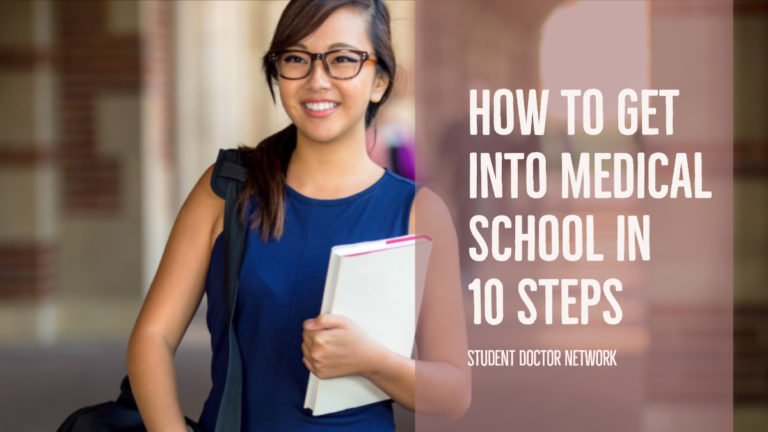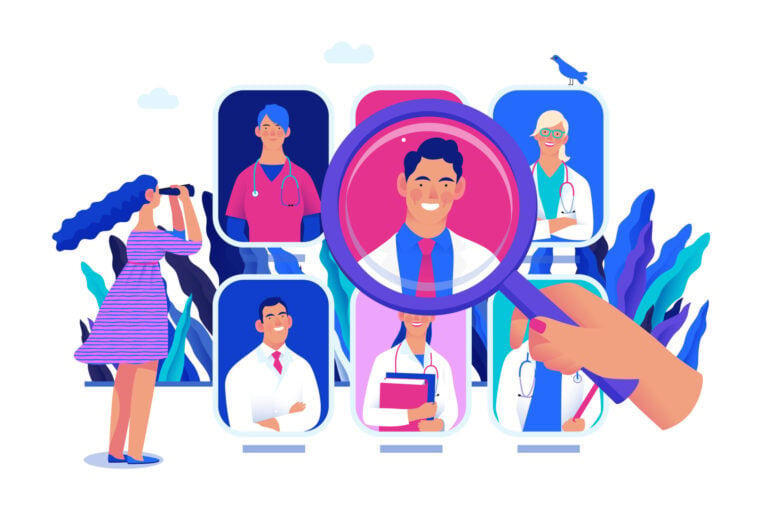
Pre-Health
Health professional programs conduct interviews to predict professionalism in applicants. COVID-19 has changed the way interviews are and will be conducted (Saxena et al). Online or virtual interview platforms are proliferating as a way to ... Read more
Emil Chuck, PhD
Updated August 8, 2022 by Emil Chuck, PhD

Pre-Medical
David Steinhardt, MD shares 10 steps for getting into medical school.
David Steinhardt
Updated June 24, 2022 by David Steinhardt

Physician Q&A
Dr. Emma Stanton is a psychiatrist and Regional Chief Partnerships Officer at Beacon Health Options, a company which is uses a data-driven approach to work with mental health service providers across the US. She is ... Read more
Gloria Onwuneme
Updated June 26, 2022 by Gloria Onwuneme

Medical School
By Amy Rakowczyk, SDN Staff Writer With Step 1 completed, and hopefully after a little R&R, your spouse is ready to get out there and try their hard-won knowledge in the clinics! Also coming up, ... Read more
Amy Rakowczyk
Updated June 26, 2022 by Amy Rakowczyk

Pre-Health
Updated December 8, 2021. The article was updated to correct minor grammatical and technical errors. The first key to success on the boards is using practice questions to develop your “hunch reflex.” If you’re a ... Read more
Patrick C. Beeman
Updated June 26, 2022 by Patrick C. Beeman

Physician Q&A
Dr. Khurram Mehtabdin and Dr. Omar Mirza are doctors by day, comic book creators by night. Their series, Zindan: The Last Ansaars, is the bestselling comic book in Pakistan through CFxComics. Since their 2014 debut, ... Read more
Christy Duan
Updated August 8, 2022 by Christy Duan

Medical School
Happy New Year from Student Doctor Network! I have always loved the beginning of a new year. It’s a time to reflect on the past, look ahead to the future, find a fresh perspective on ... Read more
Amy Rakowczyk
Updated June 26, 2022 by Amy Rakowczyk

Medical
What You Should Know is an ongoing series covering a range of informational topics relevant to current and future healthcare professionals. Pain assessment and control is something which every doctor going into practice will have ... Read more
Brian Wu
Updated March 13, 2019 by Brian Wu

Medical School
“Is it trans or cis?” It’s a question that has tortured many pre-professional students studying organic chemistry for the better part of a century. Effectively learning stereochemistry and its notation really comes down to the ... Read more
Guero
Updated July 21, 2022 by Guero

Medical School
Mental health is a topic which is discussed more openly in our society in recent decades and is, slowly, become less stigmatized. This, ironically, does not seem to be the case when it comes to ... Read more
Brian Wu
Updated June 26, 2022 by Brian Wu

Finding a Job
You’ve earned your medical degree, worked your way through your residency or fellowship program, and are now on your way to a career as a full-time physician. But what career path should you take — ... Read more
Melissa Byington
Updated June 26, 2022 by Melissa Byington

Pre-Health
Medicine needs a strong core of leadership now more than ever. Medical students and new physicians spend massive amounts of time training and studying the basics of medicine, yet they may not be receiving training ... Read more
Sidney Christiansen
Updated June 26, 2022 by Sidney Christiansen

Medical School
It is not just nostalgia and excitement that grips me as I am nearing the end of medical school. A part of me is terrified at the thought of finally having to own that white ... Read more
Butool Hisam
Updated June 26, 2022 by Butool Hisam

Healthcare News and Policy
Although repeated to the point of being cliche, “to help people” is one of the most popular answers would-be doctors give when asked why they want to go into medicine. The great news is that ... Read more
Brian Wu
Updated June 26, 2022 by Brian Wu

Medical School
By Amy Rakowczyk One thing is certain during medical school: your medical spouse is going to study and work a lot of hours. This is a necessary part of becoming a doctor. They need years ... Read more
Amy Rakowczyk
Updated June 26, 2022 by Amy Rakowczyk

Student Loans
Consider these three questions. First, what is a loan? Second, how is it typically is structured? Third, do you know how much you will be paying back if you borrowed x amount? I always wished ... Read more
Tae Kwan
Updated June 26, 2022 by Tae Kwan

Pre-Health
While your dream of getting accepted to medical school probably involves countless nights studying, hundreds of volunteer hours, and a very long application process, taking time for yourself may not always be at the top ... Read more
AAMC Staff
Updated June 26, 2022 by AAMC Staff

Residency and The Match
Central to the skillset of every physician is the differential diagnosis; this is the process by which new patients are evaluated to establish the most likely diagnosis. Similarly, the first clinical year of medical school ... Read more
Brent Schnipke
Updated June 26, 2022 by Brent Schnipke

Pre-Medical
Before medical school, the dream of becoming a physician involves helping people and curing disease. During medical school, that dream matures through educational and clinical experiences into a realization that being a physician is something ... Read more
Universal Notes
Updated June 26, 2022 by Universal Notes















